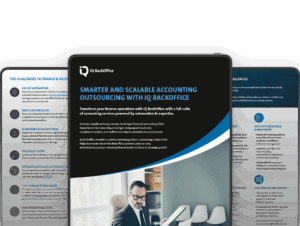
Introduction
Strategic management of accounts payable (AP) focuses on enhancing working capital efficiency. While some Chief Financial Officers may aim to extend payment periods for maximum cash flow, this approach can backfire, straining supplier relations and affecting delivery times.
Timely payments, on the other hand, offer advantages like early payment discounts and foster stronger supplier bonds, which are crucial in the face of global supply chain uncertainties. Realizing these benefits requires a strategic approach to AP management, where leadership establishes a working capital culture, emphasizing optimization and enabling increased investment in business growth.
Adopting a strategic stance in accounts payable management is essential to maximize these advantages. Establishing a working capital culture that underscores the significance of optimizing AP allows for the release of working capital, facilitating investment in expanding your business.
The Role of Strategic AP Management
Strategic AP management involves optimizing the handling of a company’s outstanding payments to suppliers. It goes beyond routine transactional tasks, focusing on enhancing efficiency, reducing costs, and fostering positive vendor relationships. This approach integrates technology, streamlined workflows, and negotiated payment terms to maximize cash flow, minimize late fees, and leverage discounts. By strategically managing accounts payable, organizations can strengthen financial health, improve liquidity, and strategically allocate resources for sustained growth.
Effectively balance cash flow by adjusting the timing and method of supplier payments. For instance, consider extending payment timelines for payables to boost cash reserves. However, be cautious, as delayed payments may strain vendor relationships. Instead, adopt a strategic approach to working capital management for better results.
The objective of Strategic AP Management
Strategic AP management aims to optimize AP processes to enhance cash flow management and secure ample working capital. This strategic approach aims to strenghten financial capabilities while ensuring a smoother financial set up.
Common goals of an AP strategy include:
Optimizing Cash Flow
Ensure a balanced and positive cash flow by strategically managing payment schedules and timing.
Efficiency Improvement
Streamline AP processes to enhance efficiency, reduce manual errors, and increase overall operational effectiveness.
Cost Reduction
Vendor Relationship Management
Compliance and Risk Mitigation
Strategic Resource Allocation
Technology Integration
Working Capital Optimization
Manage working capital efficiently to support day-to-day operations and future growth initiatives.
Invoice Processing Improvement
Data Analytics Utilization
Enhancing the precision of your cash flow forecasts and budgeting allows you to foresee and address funding gaps, ultimately bolstering liquidity. Cost savings emerge from reducing exposure to fraud and costly errors alongside streamlining manual processes. Furthermore, optimizing payment efficiency provides opportunities to negotiate advantageous terms with suppliers, such as risk-sharing, flexible payment terms, and early payment discounts.
Embracing change may pose challenges, but a strategic approach to payables management promises significant benefits and an improved financial bottom line.
Embarking on this journey is likely more straightforward than you might anticipate.
Consider the following strategies to enhance AP management, recognizing that each business is unique, yet there are universally applicable best practices to elevate your approach to AP.
How to Enhance AP Management
Implement Automation Solutions
Increase your efficiency and control with Automation Solutions via AP Outsourcing. Integrate AP automation software to streamline invoice processing, reduce manual errors, and accelerate approval workflows. Automation enhances efficiency, allowing for more accurate and timely handling of invoices.
Negotiate Favorable Payment Terms
Establish Clear Approval Workflows
Enforce Expense Policies
Regularly Audit AP Processes
Conclusion
Businesses often encounter challenges that lead to missing payment schedules, and these hurdles can range from cash flow constraints and operational disruptions to unforeseen expenses and negotiation complexities. However, recognizing these common pitfalls is the first step toward practical solutions. To address cash flow issues, businesses can implement robust cash flow forecasting, ensuring a proactive approach to managing financial resources. Operational challenges can be mitigated by investing in streamlined accounts payable processes and leveraging automation technologies to reduce errors and enhance efficiency. Open communication with suppliers, coupled with negotiation strategies for favorable terms, helps manage expectations and maintain positive relationships. Implementing comprehensive documentation processes and conducting regular audits further minimizes delays. As businesses navigate the complexities of payment schedules, adopting advanced Accounts Payable Solutions emerges as a beacon of hope. Automation, efficient workflows, and strategic management practices not only overcome challenges but also pave the way for a more resilient and optimized financial future, fostering stability, growth, and positive partnerships within the business ecosystem.
FAQs: How Late Payments Affect the Entire Supply Chain
Strategic AP management can help your business by strengthening financial health, improving liquidity, and strategically allocating resources for sustained growth. It also lets you take advantage of early payment discounts and foster stronger supplier bonds.
Are You Considering Outsourcing Your Accounting Functions? IQ BackOffice Can Help.
Here at IQ BackOffice, we provide financial business process outsourcing for large and mid-sized enterprises. We serve a range of diverse industries, including manufacturing and distribution, healthcare and dental, restaurant and hospitality, energy, retail, and technology. Our solutions enable companies around the globe to automate and streamline the complex financial processes they manage.
IQ BackOffice reengineers financial processes to take advantage of best practices and leverage state-of-the-art automation. This allows us to remove manual or inefficient steps, delivering improved controls and up to 70% cost savings for our clients.
To find out more about how IQ BackOffice can reduce costs and streamline your Accounts Payable function, get in touch with us.
Read More about IQ BackOffice offerings:
How Can Outsourcing Accounting Make Accounting Departments More Efficient?
Is it Time for your Company to Consider Outsourcing Financial Operations?
The Future of Business Payments – 5 Post-Pandemic Best Practices
Business Process Outsourcing, and a Closer Look at Accounts Payable
Accounting Automation and Outsourcing – Top 5 Rookie Mistakes
What is AP Automation and Does It Work On It’s Own?
Outsourcing Accounting Processes – Does It Actually Save Money?







